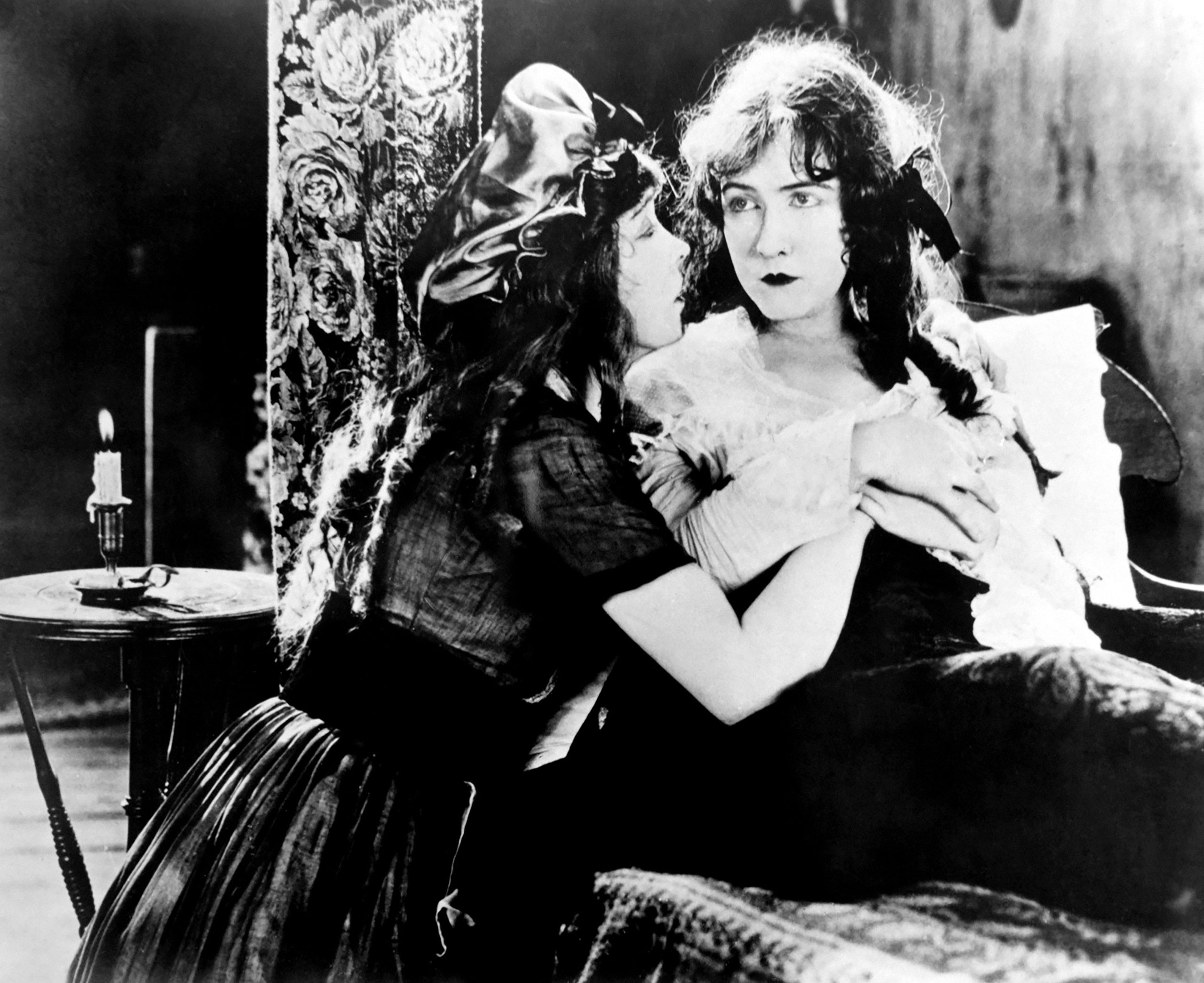D.W. Griffith was a racist, and his most famous and infamous film, the 1915 Birth of a Nation, is filled with made-up events and setups that glorified the Ku Klux Klan and white supremacy in general. It’s also an astonishingly effective and affecting piece of filmmaking, revolutionary in its complex staging, in the way it propelled cinema toward greater realism, in its use of techniques like the close-up and the fade-in (which Griffith didn’t necessarily invent but used brilliantly). Isn’t it better to be realistic about the truth that filmmaking’s power can be marshaled for causes other than noble ones? By 1921, Griffith’s star had begun its descent, as other filmmakers—many of whom he’d influenced—raced faster into the modern world. But Orphans of the Storm, once you get past its wacky, sentimental patriotism, may be his last gasp of greatness, showing the delicacy of feeling he could bring to even the most extreme melodrama. Sisters Lillian and Dorothy Gish play Henriette and Louise, young women raised together in late 18th century France as revolution brews. Louise is the daughter of a noblewoman, left as an infant on the steps of a church on a cold winter day. An impoverished local, having mournfully decided to drop his own offspring there, thinks better of it and takes both babies home with him. The girls grow up; their loving parents die; Louise is blinded by the plague. Henriette brings her to Paris, hoping for a treatment that will restore her sight. All of this happens—coincidentally—just as Robespierre and Danton are changing the face of France. It’s easy enough to get swept up in the film’s crazy, epic rush, but the Gishes are the main attraction, reaching toward one another in the midst of an anguishing separation, or embracing after finding one another again. Lillian, especially, even with her gently fluttering eyelids, her delicate rosebud mouth, is a defiantly resolute presence. You wouldn’t want to mess with her. She outlived silents for a reason.
- Breaking Down the 2024 Election Calendar
- How Nayib Bukele’s ‘Iron Fist’ Has Transformed El Salvador
- What if Ultra-Processed Foods Aren’t as Bad as You Think?
- How Ukraine Beat Russia in the Battle of the Black Sea
- Long COVID Looks Different in Kids
- How Project 2025 Would Jeopardize Americans’ Health
- What a $129 Frying Pan Says About America’s Eating Habits
- The 32 Most Anticipated Books of Fall 2024
